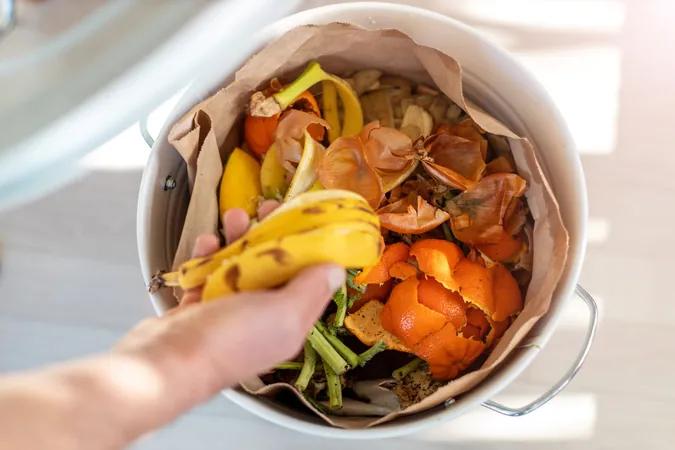
Breakthrough Discovery Turns Kitchen Waste into Energy-Generating Devices That Could Revolutionize Sustainability!
2025-03-23
Author: Nur
Breakthrough Discovery Turns Kitchen Waste into Energy-Generating Devices That Could Revolutionize Sustainability!
Researchers at the University of Illinois have made a surprising and groundbreaking discovery: the thick, spongy peels of pomelo fruit, typically tossed away, can be transformed into devices that generate electricity and monitor body movements. This innovative solution not only addresses the ongoing issue of food waste but also paves the way for sustainable energy sources from what would otherwise contribute to overflowing landfills.
Pomelo peels account for a substantial 30-50% of the fruit's total weight, which ranges between 2 to 4.5 pounds. The researchers were able to utilize the naturally porous structure of the peel to generate electricity. Through a process of freeze-drying, they preserved its unique three-dimensional structure. By pairing this treated peel with a plastic film, they successfully created triboelectric devices capable of monitoring biometric motions.
Yi-Cheng Wang, a co-author of the study, stated, “If we can upcycle the peel into higher-value products instead of simply discarding it, we can significantly cut down on waste generated from pomelo production and consumption while simultaneously enhancing the value of food and agricultural waste.”
The technology works on the principle of contact electrification—essentially the same mechanism that can give you a shock when you touch a doorknob in winter. The interaction between the pomelo peel and the plastic layer produces friction, which generates electricity that can be harnessed.
Remarkably, these devices can produce enough power from a simple finger tap to illuminate 20 LED lights. When connected to a power management system, they can operate gadgets like calculators and sports watches without relying on traditional batteries or external power sources.
Organizations dedicated to innovative waste reduction have long sought better methods of dealing with food waste, and this research significantly elevates the potential for valorization. By transforming agricultural byproducts into practical electronic devices, this groundbreaking work addresses both the twin crises of electronic waste and food waste head-on. These natural and biodegradable materials could one day replace petroleum-based components in electronics, supporting an eco-friendly transition toward plastic-free everyday products.
While still in the research phase, the team is investigating further applications for pomelo peels and other food waste materials. They believe that commercial applications could emerge within the next three to five years, particularly in the realms of wearable health monitoring devices and small-scale power generation.
“This work underscores the exciting opportunities to convert food waste into valuable devices and materials. By replacing or augmenting non-renewable resources and alleviating waste issues, it holds the potential for significant contributions to long-term sustainability. We are committed to exploring more avenues for upcycling food and agricultural waste,” Wang commented.
Imagine a future where our kitchen scraps are not just waste, but valuable resources! How do YOU plan to reduce your food waste? Share your tips and join the conversation!


 Brasil (PT)
Brasil (PT)
 Canada (EN)
Canada (EN)
 Chile (ES)
Chile (ES)
 Česko (CS)
Česko (CS)
 대한민국 (KO)
대한민국 (KO)
 España (ES)
España (ES)
 France (FR)
France (FR)
 Hong Kong (EN)
Hong Kong (EN)
 Italia (IT)
Italia (IT)
 日本 (JA)
日本 (JA)
 Magyarország (HU)
Magyarország (HU)
 Norge (NO)
Norge (NO)
 Polska (PL)
Polska (PL)
 Schweiz (DE)
Schweiz (DE)
 Singapore (EN)
Singapore (EN)
 Sverige (SV)
Sverige (SV)
 Suomi (FI)
Suomi (FI)
 Türkiye (TR)
Türkiye (TR)
 الإمارات العربية المتحدة (AR)
الإمارات العربية المتحدة (AR)